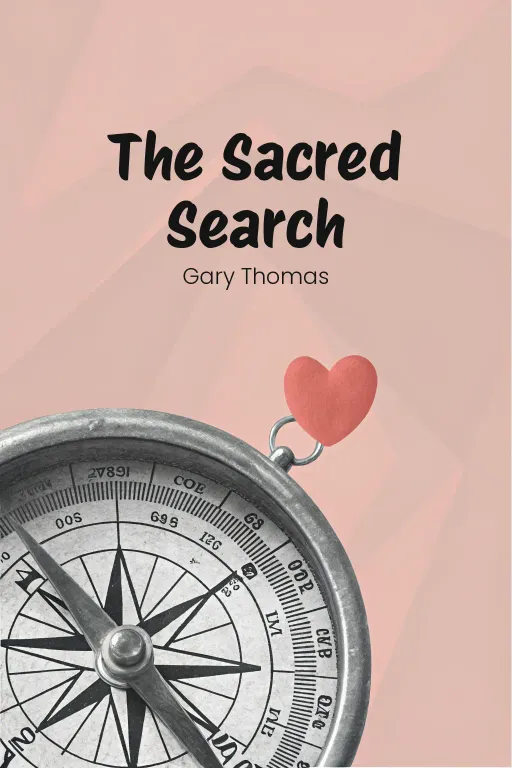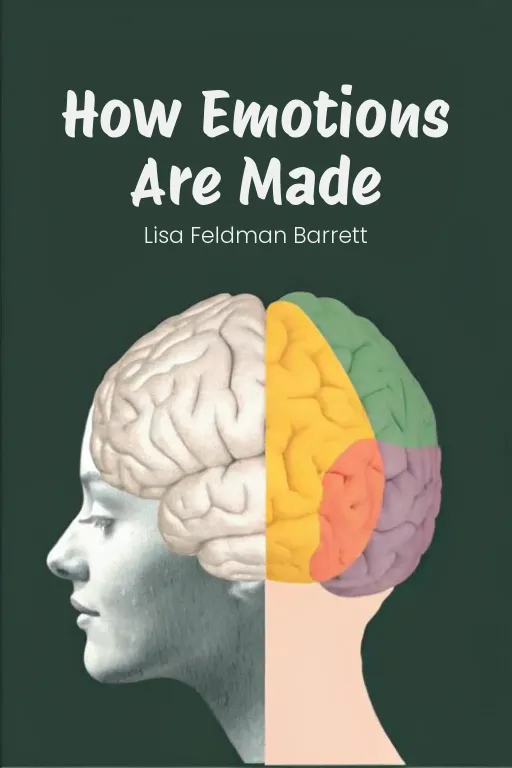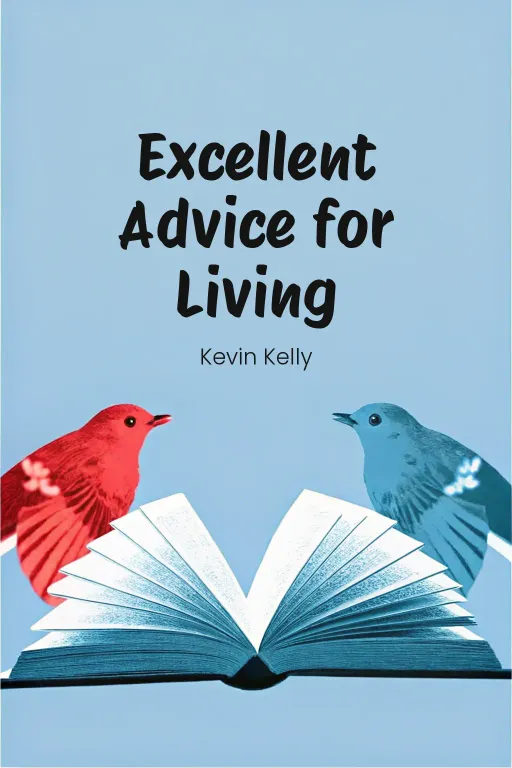
Love's Lost in Translation? Decode It Now!
Podcast by The Mindful Minute with Autumn and Rachel
The Secret to Love That Lasts
Introduction
Part 1
Autumn: Hey everyone, welcome! Today we're diving into something super interesting – love languages. You know that feeling when you’re trying to show someone you care, but it's just not landing? Ever been there? Rachel: Oh man, tell me about it. I once thought a surprise weekend getaway was peak romance, but all my partner wanted was for me to fix the eternally dripping faucet. Guess I missed the signal there. Autumn: Exactly! That’s where Gary Chapman's The Five Love Languages comes in. It's all about understanding how people give and receive love. The book outlines five main ways we express love: Words of Affirmation, Quality Time, Receiving Gifts, Acts of Service, and Physical Touch. And the really cool part? Learning to "speak" your partner’s language can “really” transform your relationship. But hey, it's not just for couples. This applies to family, friends, even colleagues! Rachel: Okay, let’s be real, we're not just here for the warm and fuzzies. Today, we're tackling three key areas. First, we’ll break down these five love languages – what they “really” mean and why they matter so much. Then, we'll get practical: how do you actually use this stuff day-to-day without feeling totally cheesy? And finally, we’ll zoom out a bit – can understanding love languages actually make us better people, maybe even help society get along a little better? Autumn: Yeah, it’s like unlocking a secret manual for awesome relationships. Whether you're trying to strengthen your marriage, connect with your kids, or just be a better friend, this is some seriously useful stuff. Let's dive in and make sense of it all! Rachel: Right, because who doesn’t want their relationships to go from feeling like glitchy dial-up to super smooth, high-speed emotional Wi-Fi? Let's get started.
Understanding the Five Love Languages
Part 2
Autumn: Okay, so let's dive right in: the five love languages. Gary Chapman basically says there are these five core ways people express and experience love, right? It's like everyone speaks a slightly different emotional language. Understanding someone's primary one is key to really connecting with them. Rachel: Right, I get it. Words of Affirmation, Quality Time, Receiving Gifts, Acts of Service, and Physical Touch. But why these five? Why not, uh, "Sharing Dessert" or "Always Letting You Pick the Movie"? Autumn: Good point. It's because these five seem to be the most fundamental and universal ways people feel loved. Let's take Words of Affirmation, for example. It's all about expressing love through verbal appreciation, like compliments, encouragement, even just saying "Thank you". Rachel: So, is it like…love as a pep talk? Or more like, "Hey, I noticed you actually made the bed today"? Autumn: It can be both! Big or small, the key word is sincerity. Chapman gave an example of a husband who consistently encouraged his wife to pursue her dream of becoming an author. Those words of support gave her the confidence to actually do it. Rachel: Okay, but couldn't this one backfire? I mean, if someone thrives on praise, a poorly timed criticism could be devastating, right? Autumn: Absolutely. Words have a lot of power for these people, so you have to be thoughtful. Even well-intended criticism can feel incredibly hurtful. Rachel: Got it. Don't weaponize the words. What about Quality Time? Is that just, you know, hanging out on the couch together? Autumn: Not exactly. It's about focused attention and connection. Being physically present isn't enough; you have to be emotionally present too. Think of taking a walk and having a real conversation, no phones allowed. Those moments are what build intimacy. Rachel: So, scrolling through Twitter while they're talking doesn't count? Autumn: Nope, not even close. It's about being fully engaged. Even five minutes of focused time is better than an hour of divided attention. Rachel: No "phubbing"—noted. Let’s move on to Receiving Gifts. This one, I think, gets a bad rap. People think it's about being materialistic. Autumn: Exactly. It's not about the money at all. It's about the thought and effort behind the gift, the symbolism. Chapman mentioned a husband who surprised his wife with wildflowers he picked on his way home from work. It showed that he was thinking about her, even during a busy day. Rachel: So it's not about the price tag, but the story the gift tells. Now, Acts of Service—is that where love looks like doing chores? Autumn: Kind of. It's loving through action. If your partner is stressed, offering to help—making dinner, running errands—demonstrates that you care and you're a team player. It's about showing you're in tune with their needs. Rachel: What if that's not your love language, though? What if doing chores feels like a list of things to do instead of intimacy? Autumn: That's a fair point. It's about finding a balance. You might not naturally enjoy it, but if it's important to your partner, making the effort shows you value them. Love languages are about stepping outside your comfort zone. Rachel: Right, last one—Physical Touch. Pretty straightforward, right? Hugs, kisses, general affection. Autumn: Yeah, but there are subtleties. It's not just about the big gestures, but the little ones too – holding hands, a comforting pat on the back. Research shows touching releases oxytocin, which helps reduce stress and increase bonding. Rachel: So you're saying a hug is biochemically saying, "I'm here for you"? That's actually pretty amazing. Autumn: Exactly! And it's a good reminder that love languages aren't about grand gestures. They're about being intentional with your actions, showing love in a way that your partner understands. Rachel: Okay, so how do people figure out their love language? You can't just say, "I like presents", right? Autumn: It’s about looking for patterns and reflecting. Chapman suggests thinking about times you felt most loved, or conversely, most hurt. Those moments can reveal your primary love language. Rachel: That makes sense. Like, if someone thrives on compliments, Words of Affirmation is probably their thing, but if they're constantly criticized, it will probably hurt more. Autumn: Exactly. Observation is helpful too. Think about how you naturally express love to others. Someone who's always doing favors for friends might have Acts of Service as their dominant language. Rachel: Okay, so if someone needs constant compliments, but their partner isn't naturally verbal, what do they do? Autumn: Effort is key. You don’t have to be perfect; you just have to be intentional. Small steps matter, like leaving a sweet note or making a conscious effort to verbalize appreciation. Rachel: Right, lean into their emotional world, even if it's not your strength. Speaking of worlds, let's talk about miscommunication. What happens when two people's love languages clash—like, Gifts versus Touch? Is it doomed? Autumn: Not at all. It creates challenges, for sure. Chapman shares stories where misaligned love languages caused friction. A husband felt unappreciated because his Acts of Service weren’t acknowledged, while his wife just wanted more Quality Time. Understanding each other's languages helped them readjust their focus. Rachel: So, the husband's fixing everything, thinking he's doing great, and the wife's thinking, "Put down the toolbox and talk to me!" Autumn: Exactly. Without that alignment, well-meaning gestures can totally miss the mark. Recognizing that helps you avoid those disconnects—so you're not just expressing love, but expressing it in a way that actually resonates. Rachel: It’s like tuning an old radio, right? When you find the right frequency, everything finally comes in clear.
Practical Applications in Relationships
Part 3
Autumn: So, with all this foundational understanding of love languages, I guess the big question is, how do we actually "use" this knowledge in our relationships every day? Theory is great and all, but applying it—that's where things get interesting, right? Rachel: Right, exactly! Like, knowing this stuff is one thing, but when it comes down to the nitty-gritty of real life… where do you even begin? Autumn: That's where the real transformation happens, Rachel. The key is to intentionally create rituals around these love languages, really practice active listening, and regularly check in to make sure you're still meeting each other's evolving emotional needs. It's a continuous process. Rachel: Okay, so say you figured out your partner's love language. Now, what? Do you just pull out a calendar and schedule, you know, "Monday: Compliments. Wednesday: Cuddles"? Autumn: <Laughs> Not exactly! Though you're not too far off, actually. One of the most effective ways to apply this is by building rituals that resonate with your partner's specific love language. For example, if their primary language is Quality Time, it's not about huge, elaborate gestures; it's about consistently weaving in small moments of focused connection. Like, maybe a weekly date night or even just a daily, distraction-free coffee chat. Rachel: Right, okay, I get that. But what happens when life throws a wrench in the works? You know, deadlines piling up, kids needing everything, the never-ending laundry… Does forcing these rituals just… add to the stress? Autumn: Not at all! The key is to weave it into your existing routine, to make it feel natural. Chapman actually shares a really interesting story about a couple named Jean and Norm. Their relationship was kind of stuck because Norm's love language was Acts of Service. He thought keeping the house in order was enough to show love. But Jean, her language was Quality Time. So she felt emotionally neglected, even though he was working hard. Rachel: Ah, classic disconnect. So, how did they fix it? Did Norm ditch the chores and suddenly become a poet or something? Autumn: <Laughs> Not quite! What they actually did was start carving out time together for activities that Jean enjoyed. Evening walks, cooking together… Simple stuff. But that intentional focus on her emotional needs made a huge difference. Jean said it felt like they were back in their honeymoon phase after just a few weeks. Rachel: Wow, that's actually pretty powerful. All it took was paying attention and, you know, prioritizing time? Autumn: Exactly. It’s not always about doing more but doing what matters most to your partner. And another huge tool here is active listening. It sounds simple, but it's often overlooked. And it's a total game changer for love languages like Words of Affirmation. Rachel: Active listening… So, like, nodding and making eye contact? Making sure you're not completely checked out? Right? Autumn: Close, but it's even more intentional than that. Active listening is about being truly present. When your partner shares their thoughts, you really engage with empathy. You're acknowledging and validating what they're saying. For someone whose love language is Words of Affirmation, that kind of interaction can meet deep emotional needs that might otherwise go completely unmet. Rachel: Okay, so, let me see if I get this straight. If someone, say, Brent, who didn't really value Words of Affirmation, wanted to level up with his partner, Becky… what would that actually look like? Autumn: That’s a great example. Brent's story is actually in Chapman’s book. Early on, Brent was emotionally distant. He dismissed Becky’s need for verbal affirmation. He even sought fulfillment outside the marriage, which, as you can imagine, caused damage, of course. But through counseling and increased self-awareness, Brent learned to listen actively when Becky voiced her feelings. Instead of brushing her off, he consistently acknowledged her feelings and began offering verbal encouragement. It was a big change. Rachel: And Becky just, you know, forgave it all after a few "You're amazing" lines? Really? Autumn: Not instantly. But over time, as Brent made a real effort to speak her language, Becky’s emotional walls started to come down. It wasn't an overnight fix, but the consistency started to fill her sense of love and trust again. So, it's a powerful reminder that love languages aren't a quick fix. It's about showing up every day with intention. Rachel: So, basically, we're talking about long-term maintenance here. Almost like, you know, checking the tire pressure or changing the oil in a car to keep it running smoothly. What about doing this proactively? Before things go completely south? Autumn: Exactly! And that’s where relationship reviews can be a lifesaver. Think of them as regular tune-ups for your relationship. You sit down together and ask questions like, "What's something I’ve done recently that made you feel really loved?" or "What can we do better to support each other going forward?" Rachel: Huh. Like a quarterly performance review, but for your relationship? You know, do people actually sign up for this? Autumn: Surprisingly, yes! Chapman mentions a couple who do these reviews every few months. The husband’s love language was Receiving Gifts, and during one of the reviews, he admitted he felt a little overlooked because gifts are such a big way he feels loved. And that aspect had been neglected. His wife, whose love language was Acts of Service, had no idea! These reviews gave them a chance to address those emotional needs before things got worse. Rachel: Sounds simple enough. Probably a little awkward, but I can definitely see how fixing those small cracks early on could save you from a major collapse later. Autumn: That's exactly the point. Through these intentional conversations, you're creating a culture of transparency and adaptability. You’re making sure you're still meeting each other's emotional needs as they change over time. Rachel: Right, that's a good point. But what if we're talking about more than just couples? How do these love languages work within families? Or even friendships? Autumn: That’s a really insightful question. Love languages can impact all kinds of relationships. For example, Chapman talks about a father and daughter who reconnected through shared activities. The father loved Acts of Service, so he started involving his daughter—who was all about Quality Time—in gardening with him. What felt like basic yard work to him turned into meaningful bonding for her. Rachel: So, what I am hearing is the chores doubled as Quality Time for one and a missed opportunity for free labor for the other? Hey, not a bad deal. Autumn: Exactly! Love languages can really help you tap into what matters most emotionally, even in family settings. Shared activities, rituals, intentional effort… They make any relationship stronger. Whether it's with your spouse, your child, or even a close friend. Rachel: Okay, I'm starting to see how all of this comes back to one basic thing: being intentional. Understanding love languages isn't, like, a magic trick or a shortcut. It's really about making a conscious effort to care for someone in a way that truly resonates with them, right? Autumn: Yes, exactly, Rachel. When you focus on speaking someone else's language, you're not just showing you care. More importantly, you're making them feel that care, which builds connection, trust, and lasting resilience.
Broader Implications and Personal Growth
Part 4
Autumn: So, Rachel, that brings us to the bigger picture with resilience and love languages—how this extends way beyond just our personal lives. Let's talk about the societal and even spiritual implications, shall we? It's like we've gone from tuning into individual frequencies to understanding the entire network. Rachel: Exactly! So, we’re all broadcasting on different emotional Wi-Fi frequencies, how does that impact the whole internet? Autumn: Precisely! Beyond just romantic couples, Chapman’s love languages have surprising ripple effects, you know? When people start practicing love languages, especially in their closest relationships, it “really” transforms personal growth, family dynamics, and even communities. It's about creating nurturing emotional environments that foster empathy and connection. And frankly, couldn't we all use a bit more of that these days? Rachel: Couldn’t agree more. Families are like the emotional testing ground for society, So, how does speaking these languages boost those bonds? Autumn: Families are where these languages often leave the most lasting impression, especially on kids. Chapman talks about how when children receive love in their primary language, it boosts their resilience, self-esteem, and overall emotional security. I recall a story he shared about a young boy struggling to spell his name. Instead of scolding him for getting it wrong, his parent praised his effort, saying, “I’m so proud of you for trying! Keep going—You’ll get it!” That simple affirmation “really” encouraged him to keep learning, fearlessly. Rachel: So, instead of saying, “That’s the worst attempt at spelling I’ve ever seen!", the parent actually builds up his confidence. So, it is kind of like fertilizing the emotional soil so he can actually grow? Autumn: Precisely. I mean, those simple encouraging words might seem small, but they're monumental for a child whose primary love language is Words of Affirmation. That emotional security they gain often carries forward throughout their teenage years, their adult relationships, even workplace interactions. Now, contrast that with children who consistently don’t have their emotional needs met. They might act out, withdraw into themselves, or struggle to trust others as adults. Rachel: Makes sense, yeah. What happens in families never “really” stays in families, does it? It's always spilling out. So, if love languages can patch up a marriage and guide parents, can they “really” have an influence on society? Or are you starting to sound like a Hallmark movie? Autumn: <Laughs> It's not as far-fetched as you think, Rachel. Strong families create emotionally secure individuals, which in turn, interact with the wider community from a place of stability and empathy. Plus, there's research backing this, too. Children raised in “really” loving, nurturing environments are better equipped to form healthy relationships later on, and they engage more positively in schools, workplaces, and their neighborhoods. It's a domino effect in the best way. Rachel: So, we're saying that using love languages at home is like planting a garden, and that garden eventually feeds an entire village. But what happens, then, when those emotional needs aren’t met? That's the flip side, right? Autumn: Unfortunately, the ripple effect works the other way, too. Individuals who grow up emotionally neglected often struggle with trust, avoid intimacy, or exhibit hostility in their interactions. Like, someone raised without ever hearing words of affirmation might “really” find it difficult to give or receive praise later in life. Addressing that disconnection at a family level can begin to break those cycles and create a more harmonious community, you know? Rachel: Wow that's pretty heavy. Alright, shifting gears here -- Let's talk about something a little less family-centric, more existential, perhaps -- spirituality! You said that love languages tap into big spiritual teachings, like grace and forgiveness. How so? Autumn: Chapman connects love languages with spiritual resilience, noting they often mirror principles in many faiths—love, patience, and even sacrifice. People who actively incorporate spiritual practices, be it prayer, mindfulness, or engaging in shared acts of faith, tend to find grounding during life's challenges. One story he shares about a couple on the brink of divorce found reconciliation not only through speaking each other's love languages, but also through rediscovering some shared spiritual practices. Which ultimately gave them the strength to rebuild that trust. Rachel: Interesting. So, what was their “aha” moment? Was it a sudden revelation, or did they slowly piece it back together bit by bit? Autumn: It was definitely a gradual process, marked by small but intentional gestures. The husband, whose love language wasn’t necessarily Physical Touch, began holding his wife’s hand during these “really” tough conversations. It was a small, deliberate act of vulnerability that spoke volumes for her. Combined with those moments of spiritual reflection, such as praying together, they were able to “really” reaffirm their commitment. Rachel: Hmm… Love languages meet spirituality—almost like a cross-training program for the heart? Autumn: <Laughs> I like that, Rachel! Spirituality often encourages us to think beyond ourselves, and love languages—they do the same thing. They challenge you to step into someone else's emotional frame of reference, to speak in a way that uplifts them, even if it isn't necessarily your default. That intentionality can strengthen not just romantic relationships, but also friendships, families, and yes, even how we approach societal divides. Rachel: Speaking of divides. Let's think “really” big here for a moment. Could practicing love languages actually help smooth over social tensions or even cultural conflicts? Autumn: On a micro level? Absolutely, yes. When people feel genuinely seen and valued within their communities, it reduces feelings of hostility and promotes cooperation. Emotional intelligence - “really” understanding not just how people think, but but how people actually feel - is a powerful tool for bridging divides. Think about applying love languages in schools, workplaces, even civic projects. It is like we're creating a shared emotional playbook that’s is definitely rooted in empathy. Rachel: So, though love languages might be intensely personal, they're not exactly private, are they? How we choose to treat each other—choosing patience instead of judgement, care over just sheer indifference -- has a ripple effect. And the more intentionally we express love, the more it seems to multiply. Autumn: Exactly, Rachel! Chapman's ultimate point is that love isn’t just a feeling; it's an action—a deliberate act of creating connection. Whether in a marriage, a family, or society at large, speaking someone’s love language builds bridges, reshapes relationships, and lays the foundation for mutual respect, as well as compassion.
Conclusion
Part 5
Autumn: Okay, let's bring it all together then. So, “The Five Love Languages” by Gary Chapman, what it really boils down to is understanding that we all express and experience love differently, right? It's about those five key areas: Words of Affirmation, Quality Time, Receiving Gifts, Acts of Service, and Physical Touch. Recognizing that, well, that's the first step in avoiding those communication breakdowns and really strengthening our connections. Rachel: Exactly Autumn. And it's not just a passive thing, is it? It's not enough to just know the languages, you've actually got to use them, intentionally. Leaving a thoughtful note, dedicating some real quality time, or even just, you know, a simple touch—these little deliberate actions can really make a world of difference in any relationship. Autumn: Precisely! And what's really cool is that Chapman's work isn't just about romantic relationships. It's about applying that same emotional intelligence in our families, in our communities, even on a larger cultural scale. Fostering empathy and connection, right? By meeting people where they are, speaking their language, that's how we build stronger, more resilient bonds, wouldn't you agree? Rachel: So, the big takeaway here is that love isn't just a feeling, right? It's a choice. It’s something you actively do, every single day. Whether it’s with your partner, your kids, or even just the people around you – be deliberate about it. Listen, learn, and communicate in a way that truly resonates with them. Because when love is truly understood and expressed, it doesn’t just stay in that little bubble. It has the potential to transform everything around you. Autumn: Absolutely beautifully put, Rachel! And I think that's a perfect place to wrap things up. This idea that intentional love creates ripples, far beyond what we can even imagine. So, let's all commit to speaking each other's languages and building those bridges. Thanks for joining us today!









